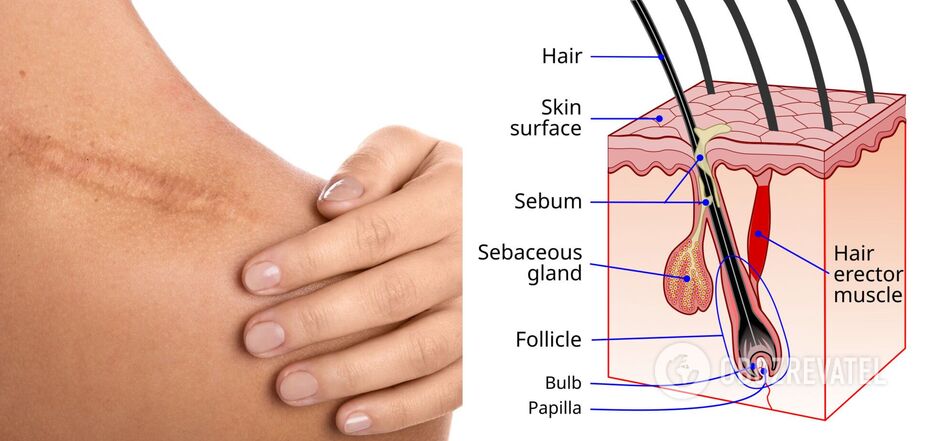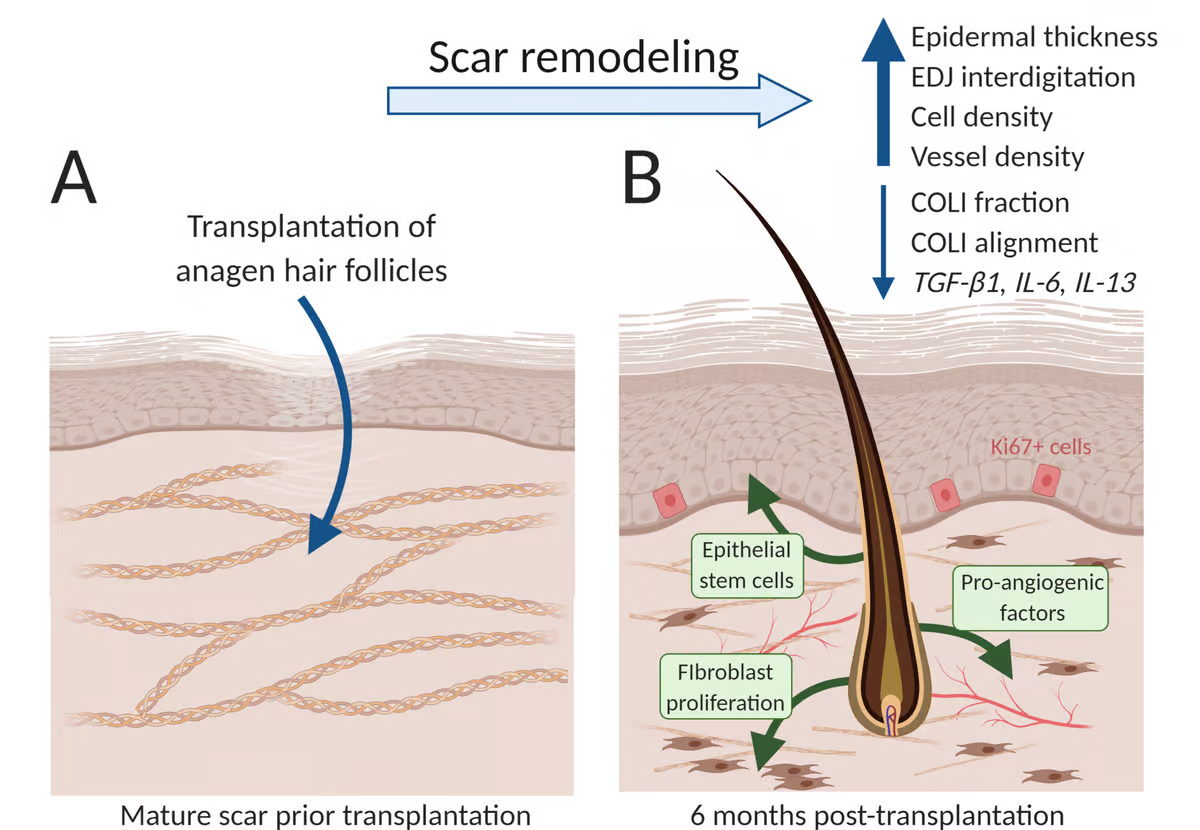Life
Scientists have found a way to get rid of scars without plastic surgery
Scars are one of the most common aesthetic skin problems for which there is no effective treatment. At least, it hasn't existed until now. But now researchers from Imperial College London have come up with a way to treat scars with hair follicle transplantation.
According to the New Atlas, the scientists started from the observation that hair does not grow on scar tissue, as well as studies that have shown that wounds heal faster and leave fewer scars in areas of skin with a large number of hair follicles. In addition, it has been found that follicles accelerate the healing process when transplanted into relatively fresh wound areas.
Therefore, the scientists decided to try to investigate the effect of hair follicle transplantation on scars to see if it could eliminate existing scars. Together with Dr Francisco Jimenez from the University of Fernando Pessoa in Spain, the British researchers took three subjects with mature scars on their scalps and transplanted follicles into these areas.
To observe the changes, they took samples of scar tissue three millimetres thick. The first one was taken immediately before transplantation, and then again in two, four and six months. It turned out that the follicles after transplantation not only did not stop producing hair, but also began to provoke "profound architectural and genetic shifts in the scars towards the profile of healthy, intact skin".
In particular, the follicles promoted the expression of genes responsible for the growth of blood vessels and normal skin cells. At the same time, the expression of genes responsible for the formation of scar tissue decreased. Four months after the procedure, the number of blood vessels in the subjects' tissues was almost equal to the number of vessels in healthy skin.
And after six months, the outer layer of skin (epidermis) on the scars doubled in thickness and almost equaled the epidermis of the intact skin. Scientists noted that the density of collagen fibres in the scar tissue decreased, meaning that the skin in this area became softer and more pliable. The researchers emphasised that these two indicators are important because thin epidermis makes the scar more vulnerable to damage, and the rigid structure of the altered skin prevents free movement.
The study, published in the journal Regenerative Medicine, notes that hair transplants can cause undesirable effects when treating scars in areas other than the scalp. But with the results of their research in mind, they will now try to better understand the mechanisms that are triggered during follicle transplantation. This will help to reproduce the effect of reducing scars without the need for actual transplantation in the future.
Earlier, OBOZREVATEL talked about a study of how the human brain changes in space zero gravity.
Subscribe to OBOZREVATEL's Telegram and Viber channels to keep up with the latest news.




























